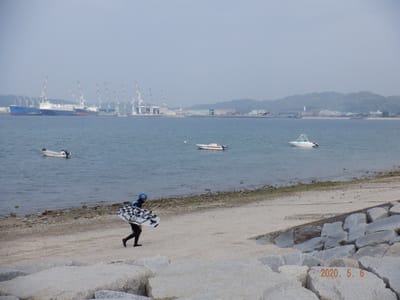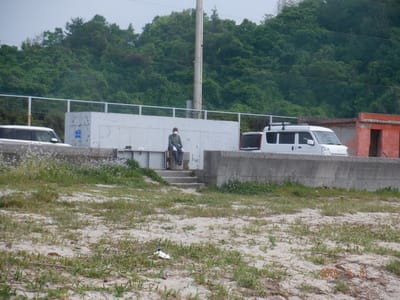衆生の心けがるれば土もけがれ、心清ければ土も清しとて、
浄土と云ひ穢土と云ふも土に二つの隔てなし。
只我等が心の善悪によると見えたり
日蓮(G-46頁)

衆生の心けがるれば土もけがれ、心清ければ土も清しとて、
浄土と云ひ穢土と云ふも土に二つの隔てなし。
只我等が心の善悪によると見えたり
日蓮(G-46頁)






正統仏教「日蓮正宗」の大原理の一つに「色心不二」「依正不二」というのがある。つまり、物(色)と心(こころ)、主体と環境はとりあえず、二つに分けて考えることはできるが、根本的には一体不二であるという事実。更につまり、どんな心もモノを生み出す力を持っていて、どんなモノにも心が宿っている。主体(自分)が変われば環境が変わる・・・ということ。
たぶん、現代人の多くには難信難解だろうな。これを本当に知るには、まだしばらく時間がかかるとは思う。ただ、もう20世紀の初頭から、相当数の、科学者と称する学者の皆さんなどはハッキリと気が付いている。モノの世界をずっと追及すると、結局、ココロの世界、観察者と観察対象の区別が不可能になるという「科学的」事実。
月の存在や運行は、今のところの通説的には一つの物質的・天文現象の一つに過ぎない。太陽や銀河もしかり。モノの側からだけ見るとそういうことになり、教育の現場でもそう教える。だから、多くの現代人はそういう、いわゆる「客観的」な観方をして事足れりとしたがる。
ところが、こんなものは、人類の、それなりに長い歴史の中では近代以降たかだか数百年。ごく最近のまことに皮相的な観方にすぎない。「色心而二不二」「依正而二不二」・・・これが通説にならなければ、人類の文明の未来はかなり厳しい・・・と私は思う。まぁ時間の問題だな。

https://headlines.yahoo.co.jp/hl?a=20200407-00004761-tenki-soci

The Beneficial Medicine for All Illnesses
From ancient times until today, illness had been one of the biggest suffering people experienced. Shakyamuni Buddha classified illness as one of the four sufferings.
「四苦=生老病死」
Nichiren Dashonin had mentioned about illness in the Gosho, "The Treatment of Illness".
"The Illness of human being may be divided into two general categories, the first of which is illness of the body. Physical diseases comprise one hundred and one disorders of the earth element, one hundred and one imbalances of the water element, one hundred and one disturbances of the fire element and one hundred and one disharmonies of the wind element, a total of four hundred and four maladies. These illnesses do not require a Buddha to cure them. The second category is illness of the mind. These illnesses arise from the three poisons of greed, anger and stupidity and are of eighty-four thousand kinds."
Illness of the mind is caused by the three poisons of greed, anger and stupidity. All these poisons pollute the life of the people of Mappo. This people commit the three evil acts : killing, stealing, unlawful sexual acts; or the four evil acts like, untruth-words, flowery words, evil-mouth or double tongue. The polluted mind causes the body to perform evil acts that create the evil karma which turn, damages the body. One's body is a subordinate to one's mind. When a person is sick, it affects the family and eventually the country. It is stated in the Gosho :
"Famine occurs out of greed, plague spreads out of stupidity and war breaks out from anger."
Tien-tai the Great mentioned the cause of illness as follows :
1.Disharmony of the four elements.
The body of the human being consist of earth, water, fire and wind. If one of these elements is not in order, it will cause a person to fall sick. For example, if the fire element is not in order, it will cause high temperature and affects the heart. If the water element is not in order, it will effect the kidney.
2.Immoderate eating or drinking.
Over-eating or lack of food will endanger our health.
3.Poor Posture.
When a person sits or walks, if his back is not straight, in the long term, it will lcause pain to the physical body. Irregular pattern of living activities, like working long hours and lack of sleep, will affect a person , causing one to become angry easily. Over-sleeping will also cause a person to feel lethargic.
4. An attack by demons from without.
For example, due to one's mind, one commits the unlawful sexual act, resulting in the attack of AIDS from without.
5.The work of devils from within.
The evil function within our life derails us from our practice, like having n odesire to chant, disregarding the law of cause and effect and having disrespect for the Gohonzon.
6.The effect of Karma
The past karma causing the present illness
The first three illnesses can be cured by the doctors, by taking the medicine or by changing one's way of life. The last three illnesses are illnesses of the mind which doctors would not be able to cure. Only the beneficial medicine,Nam-Myoho-Renge-Kyo can cure them.
As it is stated in the 23rd chapter of the lotus Sutra, The Yakuo-hon :
"This sutra is the beneficial medicine for the illnesses of all mankind. If one is ill and hear of this sutra, his illness will vanish immediately, and he will find perpetual youth and eternal life."
In"Conversation Between A Sage and Un-enlightened Man", NichirenDaishonin said :
"The Buddha has already been called an excellent physician, and the law has been likened to beneficial medicine and all living beings to people suffering from illness.The Buddha took the teaching that he had preached in the course of his lifetime, ground and shifted them, blended them together and compounded an excellent medicine, the pill of the Mystic Law.
Regardless of whether one understands it or not, so long as he takes the pill, can he fail to be cured of the illness of delusion? Even though the patient may not understand the medicine or even know the nature of the disease from which he suffers, if he takes the medicine, he is bound to recover."
Nichiren Daishonin reminded us again in the "Reply to Takahashi Nyudo" :
"With the coming of the Latter Day of The Law, however with regards to these Hinayana sutras, Mahayana sutras and the Lotus sutra - which were entrusted respectively to Mahakashyapa, Ananda and others, to the Bodhisattvas Monju, Miroku and others, and to Yakuo, Kannon and others - though the words of these sutras remain, they will no longer serve as medicine for the illnesses of living beings. The Illnesses will be too grave,and these medicines too ineffectual. At that time, Bodhisattva Jogyo will make his appearance in the world and bestow upon all living beings of Jambudvipa the five characters of Myoho-Renge-Kyo."
Our physical body is the combination of the five elements. So as we grow older,naturally it will decay and illness will appear. But when we can widely propagate this True Law, Nam-Myoho-Renge-Kyo, the illness will vanish immediately with the power of the beneficial medicine.
The following are the great benefits of "Illness vanishing immediately":
1.The pain and worry of the illness one is suffering now will vanish immediately.
2.The recent bad karma can be cleared in this present lifetimes.
3.The mutable karma can be cleared in this present lifetime.
4.The immutable karma can be changed to mutable karma.
5.The effect of the heavy karma which will manifest in the next lifetime, can be brought forward to this lifetime, and become a lighter one.
Nichiren Daishonin stated in the Gosho :
"TheMaka Shikan states : Even if one has committed heavy slanders...their retribution can be lessened in this life. Thus illness occurs when evil karma is about to be dissipated."
Another passage from the Nirvana Sutras states :
"One creates evil karma in this life will surely suffer the torments of hell in the next. However, by serving the three treasures, one can avoid falling into hell in the next life, but will instead suffer afflictions of the head, eye or back in this life."
Everybody knows that the Gohonzon is very merciful, and everybody says he believes, But whether one truly believes without the slightest doubt, or without committing any slanderous act, that is not easy. We always have to remind ourselves about the sincerity of faith. Through our sincere practice, we can clear our three poisons and our life will change. But there are still many people who do not know this beneficial medicine, so we must introduce this beneficial medicine to more people so that they will have a happy life too. (SKBK)
By Rev. Shinga Takikawa @ Kaimyo Issue 05
K先生とのやり取りがちょっと面白くなってきた^^。
-----
Good ^^! Just calm a bit down ... you as well as me are not superman... As to Shidehara, have you studied further ancestors in the range of hundreds or a thousand years...?
Do you know the first year of the official coming of Buddhism into Japan and there were roughly 6 sects in Nara-period, what Shotoku-taishi, Dengyo-taishi and some other major practitioners of Buddhism said, wrote and did in Asuka, Nara, Heian and Kamakura period? who have left great influence in most of Japanese then and now, which means not only Shidehara but most of our ancestors including myself, and they could also be your ancestors in the calculation of roughly fifty times power of 2 makes over the population 7,000,000,000 in a thousand years on earth now.
As to your book regarding Buddhism, I'm reading through it when I have free time. But why must I discuss "Buddhism" on the basis of your book? I've alreay had far better standards to discuss about Buddhism as well as other religions in the world.
Don't you think it's quite clear that I am in the center of Mahayana Buddhism for much longer than you. It is you who should read or listen to the great teaching of especially the True Buddhim, if ever you could not learn it by yourself.
Let me ask you here and now...what is you religion?, what do you belive in? what are you doing as a daily "practice" for it?
Then maybe naturally, one of the next points we should discuss should be the superiority or infefiority of Mahayana and Hindiana etc...it seems to me now 😉
この旅最後の休憩所。昼飯時に川之江(四国中央市)に着いた。あの創業者のバカ息子が億単位の金を博打に使い、業務上横領で塀の中に入った大製紙会社のある街だ。
昼間はパルプ工場の煙突から吹き出る匂いが海風に乗って内陸部まで達し、それがあまりひどいので、私などはここを通過するたびに車の窓を閉める。

